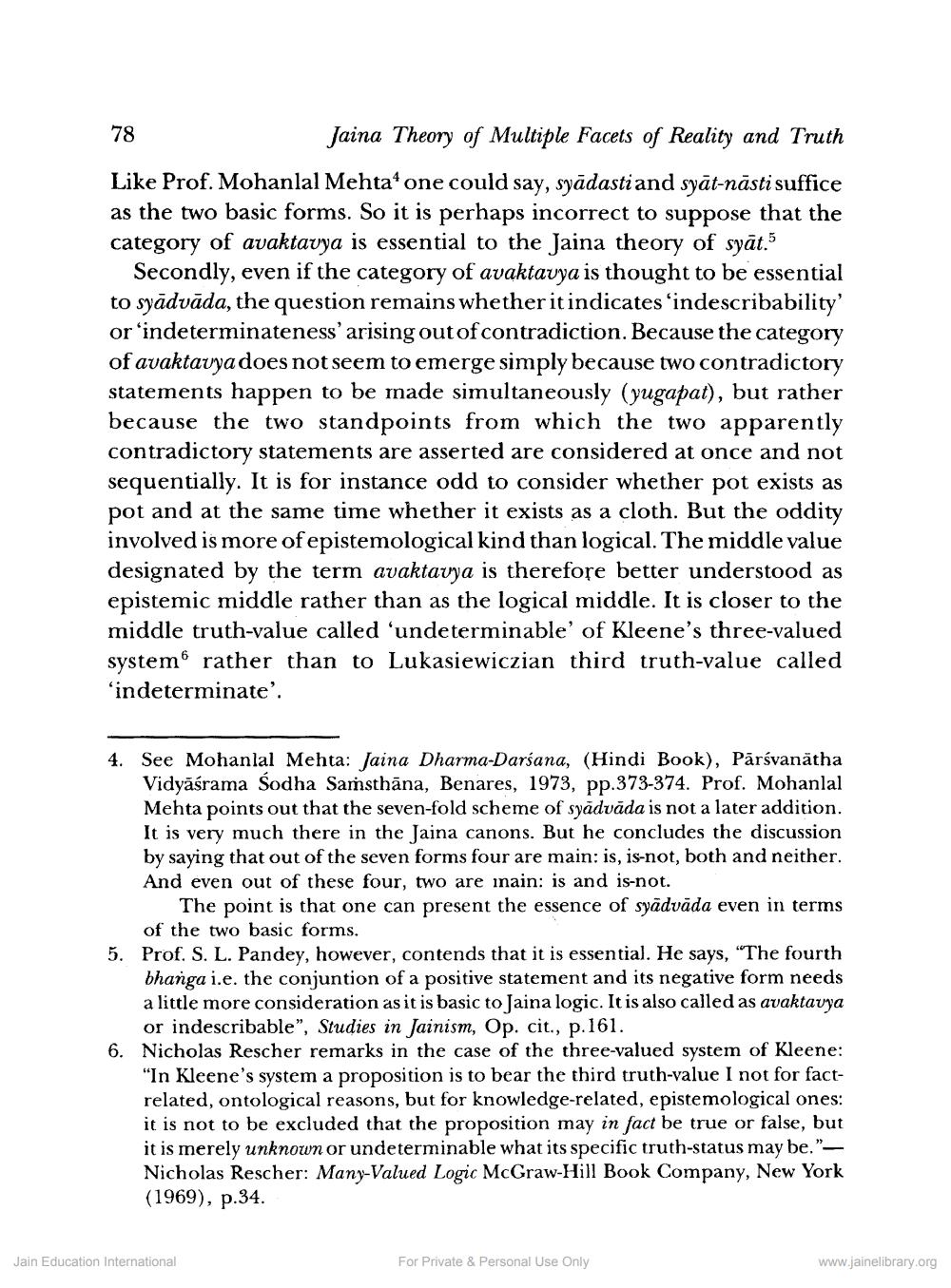________________
78
Jaina Theory of Multiple Facets of Reality and Truth
Like Prof. Mohanlal Mehtat one could say, syādasti and syāt-nāsti suffice as the two basic forms. So it is perhaps incorrect to suppose that the category of avaktavya is essential to the Jaina theory of syāt.5
Secondly, even if the category of avaktavya is thought to be essential to syādvāda, the question remains whether it indicates'indescribability' or 'indeterminateness' arising out of contradiction. Because the category of avaktavya does not seem to emerge simply because two contradictory statements happen to be made simultaneously (yugapat), but rather because the two standpoints from which the two apparently contradictory statements are asserted are considered at once and not sequentially. It is for instance odd to consider whether pot exists as pot and at the same time whether it exists as a cloth. But the oddity involved is more of epistemological kind than logical. The middle value designated by the term avaktavya is therefose better understood as epistemic middle rather than as the logical middle. It is closer to the middle truth-value called 'undeterminable' of Kleene's three-valued system rather than to Lukasiewiczian third truth-value called 'indeterminate'.
4. See Mohanlal Mehta: Jaina Dharma-Darsana, (Hindi Book), Pārsvanatha
Vidyāśrama Sodha Samsthāna, Benares, 1973, pp.373-374. Prof. Mohanlal Mehta points out that the seven-fold scheme of syādvāda is not a later addition. It is very much there in the Jaina canons. But he concludes the discussion by saying that out of the seven forms four are main: is, is-not, both and neither. And even out of these four, two are main: is and is-not.
The point is that one can present the essence of syâdvāda even in terms of the two basic forms. 5. Prof. S. L. Pandey, however, contends that it is essential. He says, “The fourth
bhanga i.e. the conjuntion of a positive statement and its negative form needs a little more consideration as it is basic to Jaina logic. It is also called as avaktavya
or indescribable", Studies in Jainism, Op. cit., p.161. 6. Nicholas Rescher remarks in the case of the three-valued system of Kleene:
"In Kleene's system a proposition is to bear the third truth-value I not for factrelated, ontological reasons, but for knowledge-related, epistemological ones: it is not to be excluded that the proposition may in fact be true or false, but it is merely unknown or undeterminable what its specific truth-status may be."Nicholas Rescher: Many-Valued Logic McGraw-Hill Book Company, New York (1969), p.34.
Jain Education International
For Private & Personal Use Only
www.jainelibrary.org




